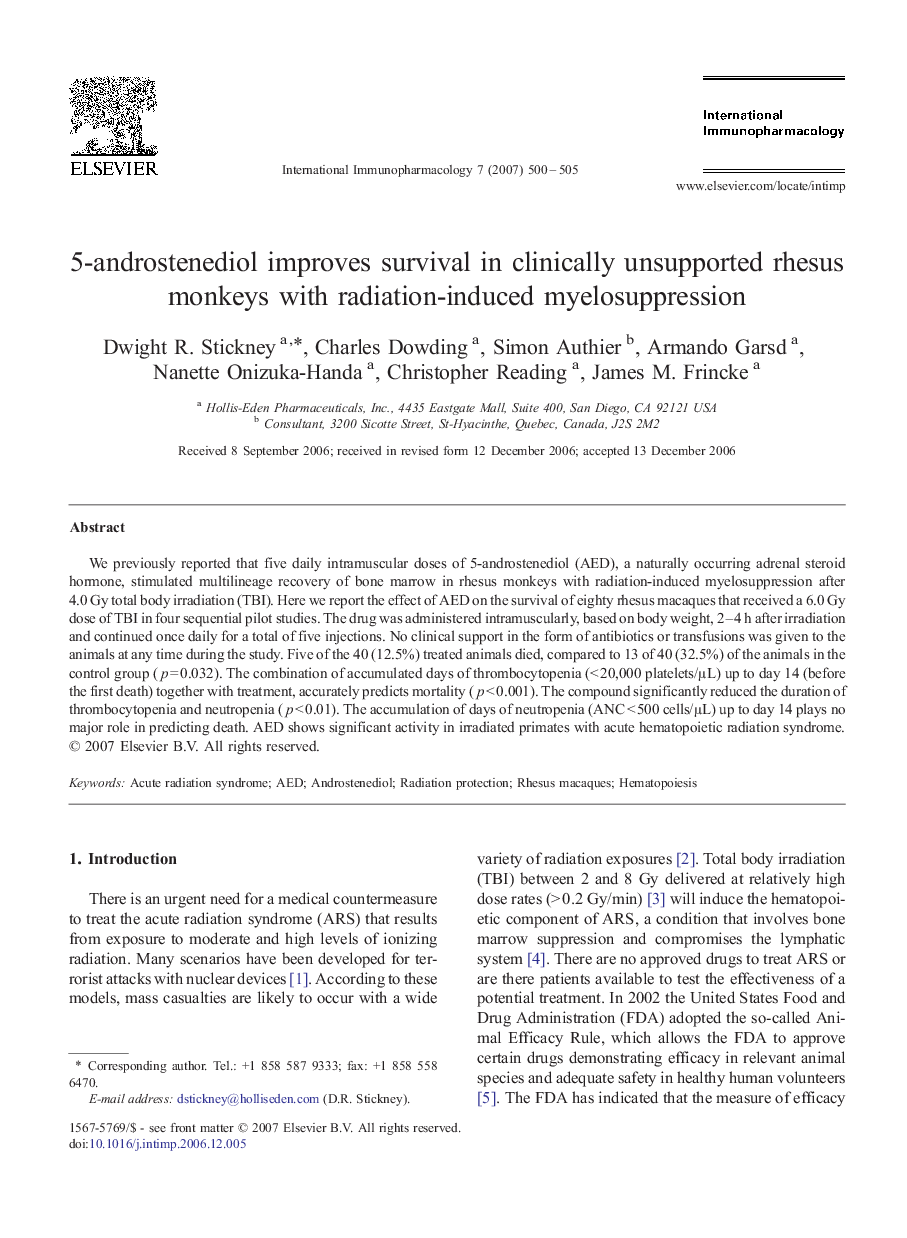| Article ID | Journal | Published Year | Pages | File Type |
|---|---|---|---|---|
| 2542640 | International Immunopharmacology | 2007 | 6 Pages |
We previously reported that five daily intramuscular doses of 5-androstenediol (AED), a naturally occurring adrenal steroid hormone, stimulated multilineage recovery of bone marrow in rhesus monkeys with radiation-induced myelosuppression after 4.0 Gy total body irradiation (TBI). Here we report the effect of AED on the survival of eighty rhesus macaques that received a 6.0 Gy dose of TBI in four sequential pilot studies. The drug was administered intramuscularly, based on body weight, 2–4 h after irradiation and continued once daily for a total of five injections. No clinical support in the form of antibiotics or transfusions was given to the animals at any time during the study. Five of the 40 (12.5%) treated animals died, compared to 13 of 40 (32.5%) of the animals in the control group (p = 0.032). The combination of accumulated days of thrombocytopenia (< 20,000 platelets/μL) up to day 14 (before the first death) together with treatment, accurately predicts mortality (p < 0.001). The compound significantly reduced the duration of thrombocytopenia and neutropenia (p < 0.01). The accumulation of days of neutropenia (ANC < 500 cells/μL) up to day 14 plays no major role in predicting death. AED shows significant activity in irradiated primates with acute hematopoietic radiation syndrome.
